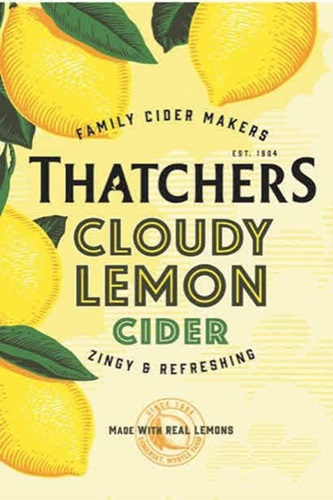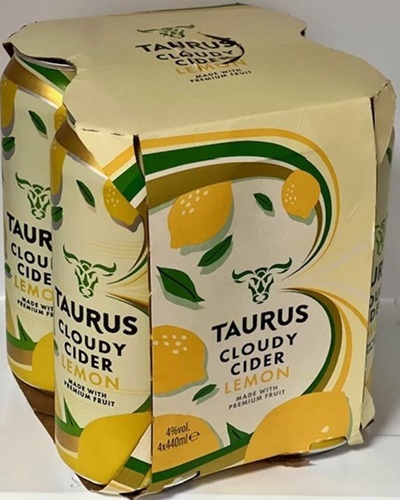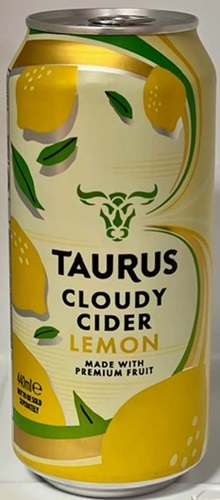In the latest 'lookalike' products case, the Intellectual Property Enterprise Court has found that Aldi had not infringed Thatchers' trade mark in relation to its cloudy lemon cider drink, and had also not passed off its product.
The case demonstrates the complexities for rights holders faced with 'lookalike' products, and the importance of taking the future prospect of lookalikes into account when designing packaging and devising the related IP protection strategy. It also demonstrates the factors a court will consider when assessing whether an alleged infringer who uses another's packaging design as a 'benchmark' has done enough to move a 'sufficiently safe distance away' to avoid infringement. Aldi was found to be on the right side of the line in this case, but rights holders will be monitoring for developments in another ongoing case involving Aldi, where it is seeking to appeal a finding of registered design infringement against it in relation to Marks & Spencers' festive gin bottle designs.
Background
Thatchers, a long-established, family-run, business specialising in cider drinks launched its cloudy lemon cider drink in February 2020, having identified a gap in the fruit cider market for a citrus-based product. As its first non-apple cider in over a century of trading, Thatchers wished to produce distinctive branding for the product, whilst ensuring it was still instantly recognisable as part of the existing brand family of Thatchers products (i.e., complementary, but different, with a 'bigger and bolder' approach). Thatchers' product won World's Best New Launch Design for 2020 in the World Cider Awards.
Thatchers obtained a UK trade mark for the following device mark which includes the THATCHERS trade mark in a prominent and large central position, alongside various tag lines, against a background of whole lemons (with leaves) and a limited colour palette:

Aldi sells its own range of cider products, the 'Taurus' range, alongside third party branded products. It launched a cloudy lemon cider drink in May 2022 sold as 4-can packs within a cardboard sleeve in the following get-up:


Compared to the Thatchers product (which is made with real lemon fruit juice), Aldi's product contains only citric acid and lemon flavouring, obtaining its cloudiness through a cloud stabiliser.
Thatchers brought claims against Aldi for trade mark infringement and for passing off. The trade mark claims were based on arguments of likelihood of confusion, and taking unfair advantage of / causing detriment to the reputation and goodwill of Thatchers' mark.
Aldi accepted that it had used the Thatchers product as a 'benchmark' when developing its product. Using a market leader's product as the benchmark in developing new products was accepted as a common practice. However, the key assessment here was the extent to which Aldi's use of the packaging design for the Thatchers' product, as a 'reference point' for its own product, might lead to a finding of infringement. For example, one instruction from the Aldi team to the external designers was that they wanted to see 'a hybrid of Thatchers and Taurus', 'i.e., be a bit more playful, add lemons as per Thatchers'.
Aldi achieved sales of over £2.4m in two years, but did not provide any evidence as to the marketing spend or efforts it had incurred, compared to Thatchers' significant brand and marketing spend to drive consumer awareness. Whilst Thatchers sought to argue that this was due to Aldi having taken unfair advantage of its mark, the Court found the disparity less astonishing, given the fact that the 'Taurus' range was already an established brand.
Decision
No likelihood of confusion
In assessing this issue, the Court concluded first that the Aldi sign (a single can of the product) was only of low similarity to Thatchers' trade mark (a 2D mark, not the product itself) for the following reasons
- The THATCHERS brand, alongside 'CLOUDY LEMON CIDER' was a dominant component of the trade mark; the whole lemons and leaves, alongside the creamy-yellow background were also important, but less dominant.
- Meanwhile, the dominant elements of Aldi's product were the central element on the front and back of the can, comprising the bull's head device and the brand TAURUS underneath. Other elements – such as the yellow, green and gold 'swoosh', the use of whole lemons (less so the leaves) and the creamy yellow background were important but not dominant.
- The brand names THATCHERS and TAURUS were aurally and conceptually dissimilar, with only a very small element of visual similarity. The swoosh was an important feature and a point of visual dissimilarity. Whilst there was similarity in the cloudy lemon cider wording, this was merely descriptive of the product.
- The use of whole lemons and green leaves did provide a point of visual similarity and conceptual identity, but there were a number of differences in the style and arrangement of the lemons, and the treatment of the leaves. These considerably decreased the importance or weight of similarity of the fact of lemons and leaves.
- The creamy yellow background and reduced colour palette was another point of visual similarity.
- The Court also found that the trade mark had enhanced distinctiveness arising from the extensive nationwide use made by Thatchers.
Key to the decision that there was no likelihood of confusion was the Court's assessment of the relevant context for the average consumer when purchasing the Aldi product. In particular, the impact of 'shelf stand-out' – an important factor in a case such as this as consumers will only look at such products on the shelf for a matter of seconds before deciding what to buy, and would therefore be looking for visual cues from the product. However, the Court concluded that the colour palette used was ubiquitous to lemon-flavoured drinks and what the average consumer might see (in particular, when looking down at the product on the shelf below their eyeline) when browsing the cider aisle at Aldi was the 'overwhelming impression' of the 'Taurus' brand.
Finally, whilst not determinative, there was no evidence of actual confusion, despite very high sales volumes for both products – the discussion on social media about the Aldi product focused on it being a 'knock off', but this was not confusion.
Accordingly, the Court rejected the claim based on a likelihood of confusion. Aldi had done enough in its packaging design to move sufficiently far away from the Thatchers trade mark.
No unfair advantage or detriment
The second main claim was that the Thatchers trade mark had a reputation in the UK (accepted by the Court), and that Aldi's use of the sign caused a link in the mind of the average consumer in that it would call to mind the trade mark (also accepted by the Court). However, the Court did not accept that Aldi's use of the sign, without due cause, took unfair advantage of and/or was detrimental to the distinctive character and/or reputation of the trade mark.
No unfair advantage
The Court took into account its findings on the evidence that Aldi had endeavoured to adopt a sign which was a 'sufficiently safe distance away' and did not intend to take advantage of the goodwill and reputation in the trade mark (and its use of the sign also did not objectively have the effect of dong so). Aldi's intention was that its product should be clearly understood as a 'Taurus' branded cider, as demonstrated by its extensive use of the Taurus (and related) branding.
No detriment
This part of the case had caught some attention as the Judge was invited to do a blind taste test comparison of the two drinks. Whilst accepting she was not a connoisseur, the Judge found the taste to be very similar, albeit accepted they were different. However, a mere difference in taste did not establish a finding of detriment to reputation to Thatchers' trade mark. This was not a case where the products were so significantly different that the taste of the Aldi product would cast the Thatchers product sold under the trade mark in a negative light.
Similarly, whilst the fact that the Aldi product had no real lemon in it might lead a consumer to distrust Aldi, this would not lead to detriment to the Thatchers' trade mark.
Comment
It has been reported that Thatchers is considering whether to seek permission to appeal the Court's ruling and so developments should be monitored. In particular, in relation to the finding that there was no taking of unfair advantage, the outcome could be compared with a decision (albeit not a lookalike case) last year where the Court found that Tesco had taken unfair advantage of the distinctive reputation in Lidl's trade marks for low price value, even though there was no subjective intention by Tesco to do so. That decision is under appeal and will be heard by the Court of Appeal in February. In the meantime, we will also await the Court of Appeal's decision in relation to Aldi's appeal of the findings of registered design infringement relating to the M&S festive gin bottle designs.